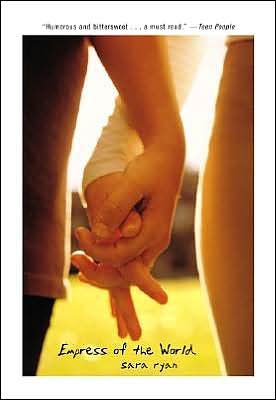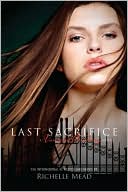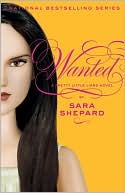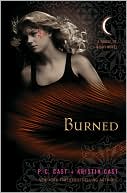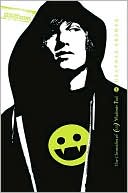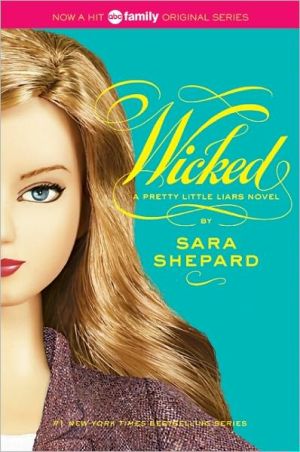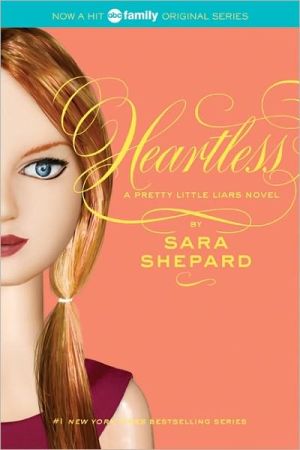Empress of the World
Nicola Lancaster is spending her summer at the Siegel Institute, a hothouse of smart, intense teenagers. She soon falls in with Katrina (Manic Computer Chick), Isaac (Nice-Guy-Despite-Himself), Kevin (Inarticulate Composer) . . . and Battle, a beautiful blond dancer. The two become friends—and then, startlingly, more than friends. What do you do when you think you're attracted to guys, and then you meet a girl who steals your heart? A trailblazing debut, reissued with an introduction by...
Search in google:
Nicola Lancaster is spending eight weeks at the Siegel Institute Summer Program for Gifted Youth, a hothouse of smart, articulate, intense teenagers. She soon falls in with Katrina (Manic Computer Chick), Isaac (Nice-Guy-Despite-Himself), Kevin (Inarticulate Composer) . . . and Battle. Battle Hall Davies is a beautiful blonde dancer, and everything Nic isn't. The two become friends-and then, startlingly, more than friends. What do you do when you think you're attracted to guys, and then you meet a girl who steals your heart?Book MagazineWhen lonely fifteen-year-old Nicola Lancaster arrives at a gifted youth summer program, she hopes to make friends and meet the boy of her dreams. Much to her delight, she immediately falls in with an eccentric group of kids and, much to her surprise, she falls in love with the girl of her dreams, fellow student Battle Hall Davies. When the two start dating, Nic is overwhelmed by the realization that she's not who she always assumed she was. Is she straight, bisexual or a lesbian? While the dialogue is a little clunky and the characters are not well fleshed out, Ryan does a nice job of tapping into the questions a teenage girl might have about her budding sexuality. Kristin Kloberdanz
\ From The CriticsWhen lonely fifteen-year-old Nicola Lancaster arrives at a gifted youth summer program, she hopes to make friends and meet the boy of her dreams. Much to her delight, she immediately falls in with an eccentric group of kids—and, much to her surprise, she falls in love with the girl of her dreams, fellow student Battle Hall Davies. When the two start dating, Nic is overwhelmed by the realization that she's not who she always assumed she was. Is she straight, bisexual or a lesbian? While the dialogue is a little clunky and the characters are not well fleshed out, Ryan does a nice job of tapping into the questions a teenage girl might have about her budding sexuality. \ —Kristin Kloberdanz\ \ \ \ \ Publishers Weekly"An appealing heroine at a summer school program grapples with the ordinary drama and trauma of teen romance," PW wrote. "This debut author surpasses many of the trappings of stereotypical gay teen representations." Ages 14-up. (May) Copyright 2003 Reed Business Information.\ \ \ Publishers WeeklyWhile the characters in this first novel are not fully developed and the dialogue often feels clunky, Ryan nonetheless surpasses many of the trappings of stereotypical gay teen representations. At a summer school program for the gifted, anthropology student Nicola, or "Nic," pens everything in her "field notes," from over-scripted exchanges with her dimensionless new friends, like outspoken redhead Katrina and spacey music student Kevin ("It's like we're in a chat room and he's got a really slow connection") to painfully detailed descriptions of their clothes. Nic's driving need to label everything wears at her fledgling relationship with Southern belle Battle (tension comes to a head on their "two-week anniversary"). Ryan is to be applauded for taking this story beyond an identity struggle; at story's end, Nic is unsure if she is a lesbian or bisexual, but she comes to accept her feelings without having to label herself, and learns to tolerate outsiders' judgments. Mostly she grapples with the ordinary drama and traumas of teen romance. Ryan also does not shy away from describing the physical relationship between Nic and Battle (though nothing beyond kissing is made explicit). Her story unfolds slowly and, ultimately ends up feeling unpolished, but many teens will be drawn to the subject matter, and Nic herself is an appealing heroine. Ages 12-up. (Aug.) Copyright 2001 Cahners Business Information.\ \ \ \ \ KLIATTThe setting for this first novel by Ryan is a college campus where gifted high school students gather for a summer program. Mostly misfits in their local communities, these teenagers find real friendship through the weeks of the studies. And they find love as well. Nicola (Nic) is interested in theater, music, and art—she also is fascinated by archeology and focuses on that, when she isn't totally distracted by her feelings toward Battle, a beautiful girl with a Southern drawl, a gifted dancer. Their love affair progresses from a tentative first kiss to sneaking out at night to be alone in the woods to have sex. Most of the plot centers on this first lesbian affair for each—their confusion, their joy, the misery when they break up, and so forth. Comic relief is provided in the character of Katrina, a computer person with a big mouth, who sounds perhaps far more experienced and precocious than she actually is. She is interested in Isaac, who is interested in her, but it takes some while for the two of them to connect. Katrina smokes with passion, swears of course, and talks about sex as though she were an experienced hooker. This inner group of friends has no problems about Battle and Nic's same-sex love affair, but there is some homophobia expressed by some peripheral characters. This novel will definitely appeal to gifted, articulate teenagers with liberal social values, like the characters in the story. Probably the masses of YA readers, the same ones who feel uneasy around fellow students like Nic, Battle, Isaac, and Katrina, won't feel too comfortable reading about them either. KLIATT Codes: JS—Recommended for junior and senior high school students. 2001, PenguinPutnam, Viking, 169p., $15.99. Ages 13 to 18. Reviewer: Claire Rosser; KLIATT , July 2001 (Vol. 35, No. 4)\ \ \ \ \ VOYAThe Siegel Institute Summer Program for Gifted Students has much to offer teenagers—the chance to live like college students for the summer, the opportunity to attend intellectually challenging classes, and the time to make friends with people who have similar interests and abilities. Nicola (Nic), who does not have many true friends, immediately bonds with Katrina, a carefree computer whiz; Isaac, a nice guy with family problems; and particularly with Battle, an attractive dancer. Nic and Battle feel an immediate rapport, and their relationship soon moves beyond friendship. Nic is both elated and puzzled by her first romance. Young adult librarian Ryan's debut novel is written from Nic's perspective in journal format. Dialogue and field notes are included to pique the reader's interest. Nic and her new friends seem real-smart, verbal kids who are not as confident as they try to appear. The conversations ring true as discussions range from whether ranch dressing is a food group to the idiosyncrasies of parents. Although the relationship between Nic and Battle is the focus of the novel, the other characters help keep the action moving. The Nic and Battle's romance has the usual breakup-and-makeup drama, with an ending that is unforced and natural. A more modern, less romantic story than Nancy Garden's Annie on My Mind (Farrar Straus Giroux, 1982/VOYA August 1982), this story will appeal to Annie's fans. Readers looking for a different kind of love story or those who enjoyed Marion Dane Bauer's short story collection, Am I Blue? (HarperCollins, 1994/VOYA August 1994), will also be drawn to Empress with its engaging story and eye-catching cover and format. VOYA CODES: 4Q 4P J S(Better than most, marred only by occasional lapses; Broad general YA appeal; Junior High, defined as grades 7 to 9; Senior High, defined as grades 10 to 12). 2001, Viking, 192p, $15.99. Ages 13 to 18. Reviewer: Judy Sasges SOURCE: VOYA, August 2001 (Vol. 24, No. 3)\ \ \ \ \ Children's LiteratureFifteen-year-old Nic has always thought she wanted to be an archaeologist. In typical scientific fashion, she forms a hypothesis—"Taking an actual class in archaeology will serve to confirm Nicola Lancaster in her lifelong dream," and she conducts an experiment—enrolling in a summer-long institute for gifted teens. She doesn't know anyone there, but quickly makes friends with several other students, including Battle, the captivating girl with beautiful hair who caught her notice from the first. Nic quickly falls in love with her, and a relationship evolves that is both difficult and confusing, enthralling and deeply-felt. Each girl struggles to find the meaning of their relationship in her own way; each wonders if she is lesbian or bisexual, and confusion is only heightened by the negative reactions of their classmates. Ultimately, the story moves beyond this theme as the characters learn to accept their feelings and to disregard others' reactions to their relationship. Sara Ryan has aptly captured the hesitancy and feeling of first love in this open, honest summer romance. 2001, Viking, $15.99. Ages 12 to 16. Reviewer: Heidi Green\ \ \ \ \ From The CriticsFifteen-year-old Nicola Lancaster attends the Siegel Summer Program for Gifted Youth to develop her intellect, but she ends up learning more about the art of living and the joy of living. Nicola had been pretty certain about her ability to order her life much like a scientist organizes a research project. However, when her first love is a smart, charming dancer nothing like herself, she begins to see the world through new eyes. Loving someone so different, yet of the same sex, opens Nicola's heart to new ways of being. She sees life as more unpredictable and people as less easy to categorize. The writer understands the flow of realistic teen dialogue, and avoids easy stereotypes. Encouragingly, she eschews the hopelessness or pathos of many past books of same-sex adolescent love stories, while still exploring the problems young lesbians and gays confront in our heterosexist culture. 2001, Viking, 213 pp., \ — Rob Linne\ \ \ \ \ School Library JournalGr 9 Up-Written with understanding, humor, and heart, this first novel explores a teen love relationship bounded by time, inexperience, and an enclosed community setting. Nicola goes away to a summer program for gifted students, expecting to explore her interest in archaeology while also continuing her artwork. On the very first day, she is attracted to another girl, but she refuses to be labeled as a lesbian because she thinks she's also attracted to boys. And that is the rub with which Nic is faced in this realistically flowing plot: she thinks and analyzes everything she feels, everything others say to her, things left unsaid. This, rather than the gender orientation of her first serious relationship-which does unfold, collapse, and then bloom again before summer's end-is what she learns about herself. Ryan places Nic not only in a romantic relationship with a girl who herself is willing to explore sexuality with a girl and a boy in the same summer-school period, but also in credible friendships with an evidently straight girl and a couple of straight boys. The strength of this novel lies in this interweaving of types of partnerings: the ones driven by desire, those driven by respect for emotional understanding, and others that teens undertake for reasons-frustratingly for Nic-that simply can't be analyzed. These characters seem to breathe in their realism, and the setting of a secluded campus, inhabited by brainy teens for a couple of months, is evoked in sensual detail.-Francisca Goldsmith, Berkeley Public Library, CA Copyright 2001 Cahners Business Information.\ \ \ \ \ Kirkus ReviewsIn a love story that breaks the usual rules ("There's two girls and a boy, but they're not in the roles you'd think they'd have"), Ryan has written an almost too-perfect awakening story. Nic is studying archaeology at a summer camp for academically gifted students. For the first time in her life, she discovers a group of friends surprisingly similar to herself-periphery kids who aren't loners but who don't quite fit in. In addition to Katrina and Isaac, Nic meets Battle, "Beautiful Hair Girl." The four quickly form a tight-knit group, but it's Battle who steals Nic's thoughts. As the lines of friendship blur, Nic and Battle struggle with a relationship that is almost as difficult for them to understand as it is for society. Even in an environment that respects her intellectually, Nic once again finds herself on the outside. Ryan uses a language that not only understands teenagers, but also illustrates respect for them. She also accurately represents a variety of reactions to Nic, from outright hostility and moderate wariness to neutrality and complete support. Seeing eye-to-eye with her characters, Ryan neither patronizes them nor builds them up. Both controversial and long-awaited, this helps to fill a need that is painfully obvious in YA literature and introduces a wonderful new voice. "(Fiction. YA)"\ \
